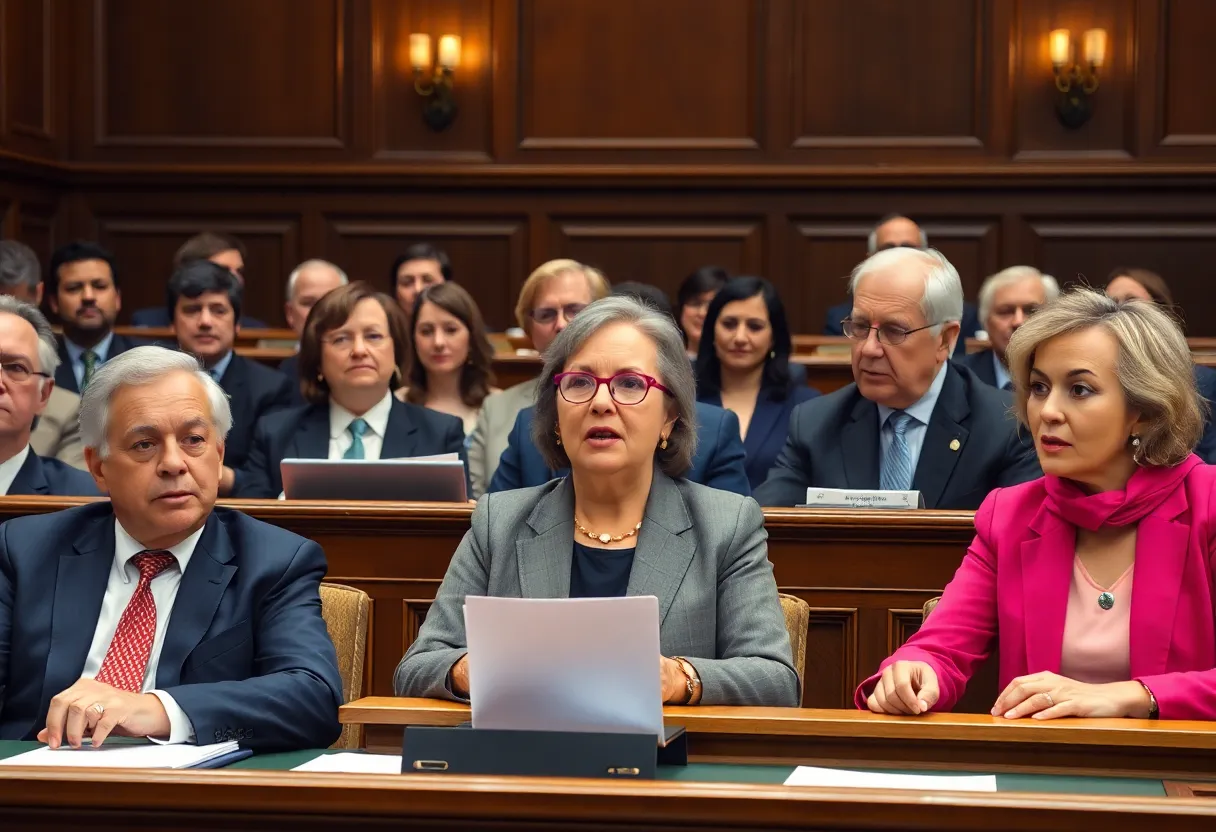News Summary
The Georgia Senate has advanced House Bill 127, which aims to eliminate diversity, equity, and inclusion (DEI) programs in public schools. The bill passed with a 33-21 vote, sparking intense debate among lawmakers and educators. Supporters argue it promotes equal opportunities, while opponents fear it restricts vital discussions on racial justice and historical topics. As the bill returns to the House for further consideration, concerns about its implications for education in Georgia continue to rise.
Georgia Senate Sends Shockwaves with New DEI Bill
In Atlanta, the Georgia Senate recently made headlines by advancing a controversial bill that has sparked intense debate among lawmakers and citizens alike. Early Thursday morning, after an eventful 39th legislative day of the 2025 session, the Senate moved forward with House Bill 127, a piece of legislation that aims to put an end to all diversity, equity, and inclusion (DEI) programs and policies in public schools and universities across the state.
A Contentious Vote
The bill passed with a 33-21 vote, an outcome that many observers would describe as anything but smooth. Interestingly, this bill managed to take the place of another proposal that was designed to expand much-needed sick days and maternity leave for public school teachers, raising eyebrows and questions about priorities in the legislature.
What the Bill Proposes
If the bill were to become law, it would significantly restrict the ability of educational institutions to engage in discussions about critical issues related to racial justice. In fact, it has been laid out that institutions could face withholding of state funding if they continue to have DEI programs or activities in place. This creates a rather tense atmosphere for educators and administrators trying to foster inclusive learning environments.
The bill’s sponsor, a Republican senator from Sylvania, stands by the argument that this initiative seeks to prevent discrimination within public educational institutions. According to supporters, the essence of the bill is to enhance equal opportunities for all students, claiming that DEI initiatives often contradict the principle of equality.
Opinions Divided
However, the peach state’s Democrats are crying foul over this legislation. They are expressing deep concerns that this bill would roll back progress made in combating state-sponsored discrimination. Opponents of the bill fear it could censor the conversation around significant historical topics like the role of slavery in shaping America, clouding the educational landscape with confusion and uncertainty about what can be taught.
Throughout the debates, intense emotions ran high. Many argued that discussions about diversity, equity, and inclusion are essential for understanding societal differences and fostering better community relations. There were attempts by Democrats to introduce up to 20 amendments to the bill, a notable move that would have allowed for more nuanced discussion. Unfortunately, all those attempts were turned down, much to the disappointment of Senate Minority Leader Harold Jones II, who described this decision as a step backward for the state.
The Path Forward
As House Bill 127 returns to the House for further consideration, there is still a possibility for amendments. The legislative session is nearing its end, scheduled to wrap up on Friday, creating a sense of urgency for a final vote. The clock is ticking, and lawmakers are preparing for what may be a fierce showdown.
In the midst of all this debate, educators express valid concerns about the potential backlash from this legislation, particularly when it comes to programs designed to support students from various backgrounds or those with disabilities. The legislation has drawn parallels to national discussions surrounding DEI programs and restrictions on federal levels, reminiscent of proposals from previous administrations.
The Bigger Picture
As discussions on the bill proceeded, the air was thick with reflections on the history of racism in America. Comments were made regarding how the bill aligns with previous policies seen during the Trump era, specifically targeting DEI initiatives. During these emotional exchanges, the chasm in beliefs regarding DEI programs became strikingly visible, revealing a deep divide in how lawmakers perceive “true diversity of thought.”
Looking Ahead
With critical issues at stake, including how history and societal issues are taught in schools, there is no shortage of opinions on the matter. As the Georgia Senate navigates through these turbulent waters, everyone is left wondering: what will be the final outcome, and how will it shape the future of education in Georgia?
Deeper Dive: News & Info About This Topic
HERE Resources
Georgia Senate Advances Bill to Ban DEI Programs in Education
Georgia Legislators Seek Changes to Education Funding Formula
Education in Atlanta Faces Uncertain Future






